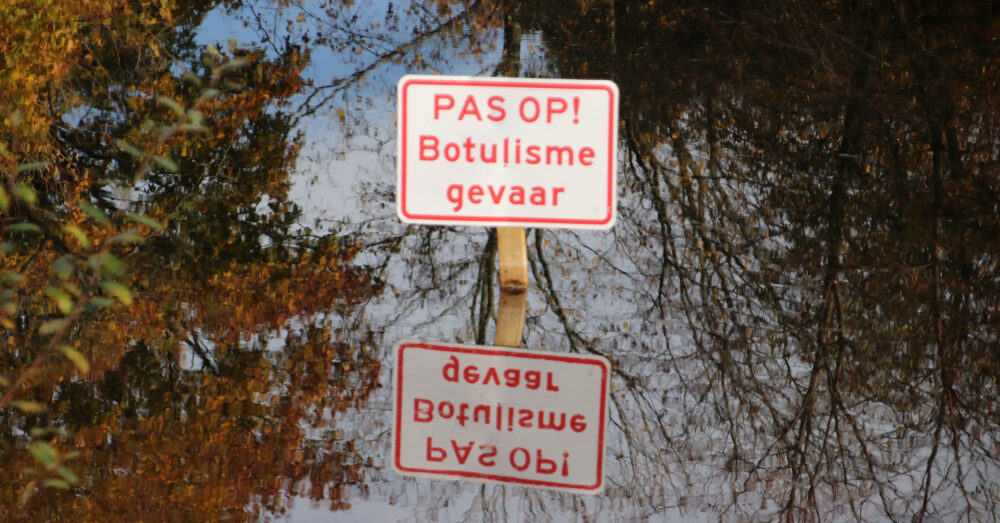It’s a frustrating fact that the lecture halls remain empty. Should we make attendance compulsory for students? Lecturer in Organic Chemistry Tjerk Sminia and associate professor of Business Economics Yann de Mey on ‘the carrot and the stick’.
Yann: ‘I am against it. One of the main goals of a university education is for students to learn to plan for themselves, to be independent and to see the consequences of their decisions. And to realize that it is an impoverishment of their education if they do not attend classes. If you make it compulsory, you deprive them of this learning process.’
Tjerk: ‘Essentially, I am also against compulsory attendance, if only because of the administration involved. Compulsory attendance goes against the spirit of the university. There are elements that you can make compulsory, such as practicals and seminars where you teach skills that cannot be learned online. In chemistry, for example, you need to be able to draw molecules, which you have to train to do. I then want to be able to see directly how students are developing, spot their errors and respond to them. I know from experience that attendance works. In period 1 – when everyone enthusiastically returned to the campus after Covid – 95 per cent of my students passed. In period 2 – when the drive to come to class dwindled again – that dropped to 50 per cent. I try to make that clear in my lectures, but apparently that is not enough. So for seminars, I do tend to favour making attendance compulsory.’
We try to motivate students with a bonus
Yann de Mey, associate professor of Business Economics
Yann: ‘Of course I can teach my courses online, but there isn’t the same depth. I also notice that in online lessons, students ask a question, I answer and they go offline again. When you are together in a room, you can go into greater depth. Perhaps students see it differently. They find working online more efficient. So yes, it is the carrot or the stick. We now try to motivate students with a bonus: half of the bonus is for the quality of the work, the other half is attendance. If students really cannot come to class, fine, but then no full bonus. This is how you steer them in the right direction without saying “you’ve got to be there”.’
Tjerk: ‘Is that really necessary, a bonus? Free coffee and muffins, offered by the university… Attendance remains low at the moment, so it seems we are not making it clear enough to them why they are at university and what possibilities it offers. First-years especially have to be taken by the hand and one way of doing that is to make attendance compulsory. Later on, they can decide for themselves whether or not they want to attend.’
Yann: ‘Things are in transition. It may pick up again after the summer holidays. But there is now a cohort that has gone through the first and second years of their Bachelor’s degree almost entirely online. It’s the only system they know. Here’s an example. My wife also works at WUR and had supervised a student during his Master’s thesis. It was possible to hold their last meeting in-person. My wife was pleased about that, but the student said: “Then I’d have to travel and it would cost money”, not realizing that a live presentation would get him a better grade. She really had to persuade him, after he had already done his entire MSc online. Everyone has to adapt again, that’s the crux of the matter. Perhaps, indeed, we should make things clearer to them, which we could do through the study societies. Like: this is how it works.’
Take them in tow at first, and from period 3 they can make up their own minds
Tjerk Sminia, lecturer in Organic Chemistry
Resource: ‘What if the lecture theatres remain empty? Will you both still be against making attendance compulsory?’
Yann: ‘For lectures, I would certainly never do it. You could also increase the pressure by taking away the option of recording lectures. Let students read the book if they want depth. I will never make it compulsory.’
Tjerk: ‘I agree with Yann. The practical sessions need to be compulsory, for the sake of my own motivation too actually. And we have also stopped making lectures available live online: we still put recordings online, but only three weeks later. And we should be more insistent about it. As Yann says, this can be done through study societies. We must explain how important it is to attend classes. Basing our case on arguments and good sense.’
Yann: ‘I don’t have much faith in that. I want to understand why they don’t come. I believe the reasons are diverse. I think students are unaware of the problem. They say, “It’s allowed, isn’t it?” I want to understand why they don’t come, and whether they understand the impact it has on their learning process.’
Resource: ‘And do you see a case for an 80 per cent attendance rule, for example?’
Yann: “No again. But if I notice that attendance stays low and students stubbornly stay at home at their screens, then I will make my classes even more interactive and ask everyone to read through the material beforehand. Then you can discuss everything in-person in the lecture hall. You can ask questions, walk around the room, and see from their faces whether they understand. You’ve got to create interaction in the lecture hall, to encourage students to attend.’
Tjerk: ‘And here again: take them in tow at first, and then from period 3 they can make up their own minds.’

 Yann de Mey (left), associate professor of Business Economics and Tjerk Sminia, lecturer in Organic Chemistry. Photo’s Guy Ackermans
Yann de Mey (left), associate professor of Business Economics and Tjerk Sminia, lecturer in Organic Chemistry. Photo’s Guy Ackermans 

